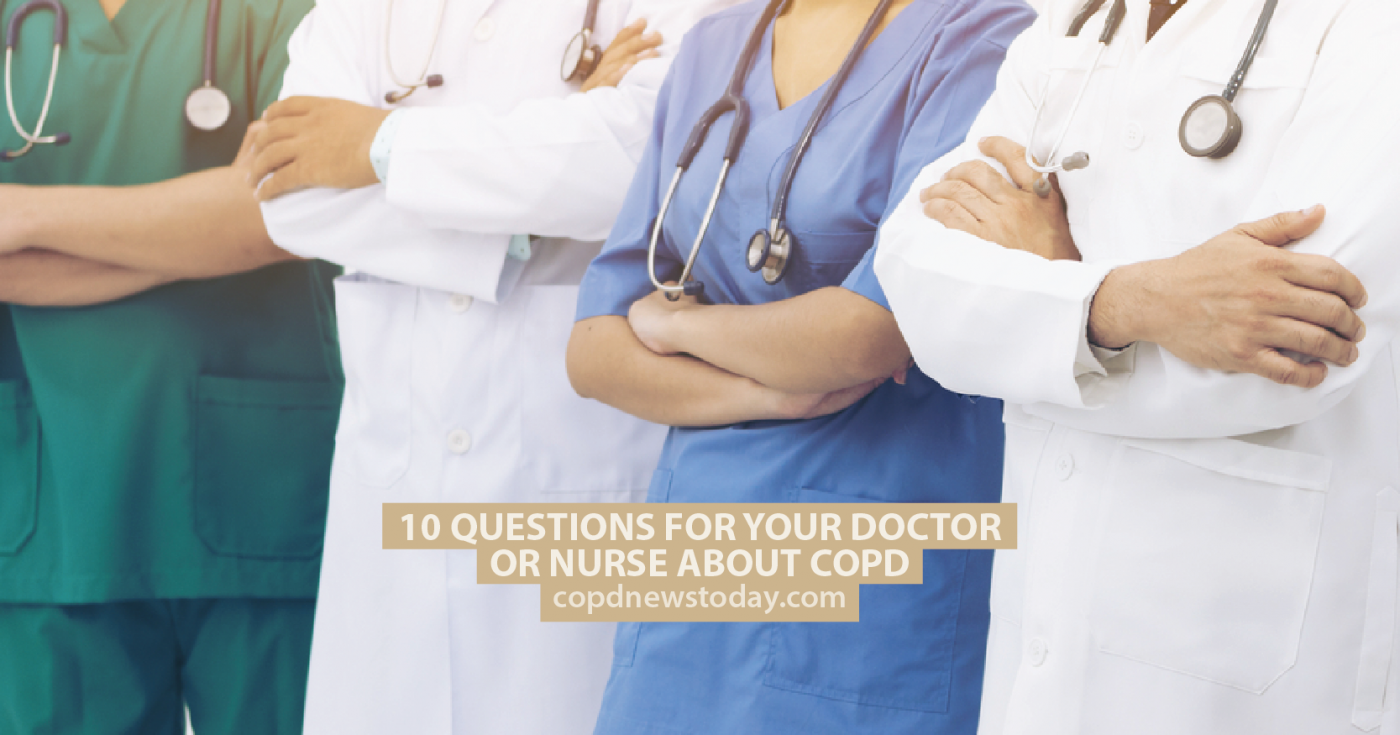10 Questions for Your Doctor or Nurse About COPD
Written by |

If you’ve been diagnosed with chronic pulmonary obstructive disease (COPD), it’s likely that you will have a lot of questions. Your first point of call should be your healthcare team, as they can help guide you through any confusion or uncertainty you may have. Asking the right questions will help you get the knowledge you need to be proactive in your treatment.
According to British Lung Foundation, here are some questions you may want to ask your doctor or nurse:
How do I use my inhaler?
It’s important to know how to use your inhaler correctly so that your medications work as they should. Your doctor or nurse should be able to give you a demonstration and watch you to correct any mistakes you may be making.
Am I taking the best meds for COPD?
There are many different kinds of medications available, so you need to confirm that you’re taking the best ones for you. This may change over time, so it’s prudent to ask this question on a regular basis.
Do I need a rescue pack for COPD flares?
If the answer is yes, you will need to know which things to include.
MORE: What to know if you’ve just been diagnosed with COPD
Will my flare-up plan be effective?
You may have been advised to make a flare-up plan, so check with your healthcare team to ensure that it’ll be effective and is workable and that you haven’t missed anything.
Can I have pulmonary rehabilitation?
Pulmonary rehabilitation (PR) is often seen as an integral part of treating any chronic lung disease. Speak to your healthcare team about getting started.
What type of exercise is right for me?
Your doctor will be able to advise you on how often you should be exercising and what types of exercise would be best for you to participate in.
MORE: Nine exercises suitable for people with COPD.
What do I do if I feel unwell?
The doctor should be able to advise you on how best to handle any exacerbations you experience.
How do I look after my emotional wellbeing?
It’s common for people with chronic illnesses to become depressed or anxious, but this can be treated. It’s important to speak to your doctor if you feel you’re not coping well emotionally.
What will happen as my COPD progresses?
Although this may be a difficult topic to broach, it’s important to know what might happen in the future so you can be prepared. You may need to alter your lifestyle or take different medications as the disease advances. Arm yourself with as much information as possible so that you can make informed choices about your future treatment.
Do I have all the contact numbers I need?
Ensure you have all the relevant contact numbers you may need in case of emergency. Store these somewhere safe and keep a backup copy of them with a trusted family member or friend.
MORE: Nine important dos and don’ts for people with COPD.
COPD News Today is strictly a news and information website about the disease. It does not provide medical advice, diagnosis or treatment. This content is not intended to be a substitute for professional medical advice, diagnosis, or treatment. Always seek the advice of your physician or another qualified health provider with any questions you may have regarding a medical condition. Never disregard professional medical advice or delay in seeking it because of something you have read on this website.




